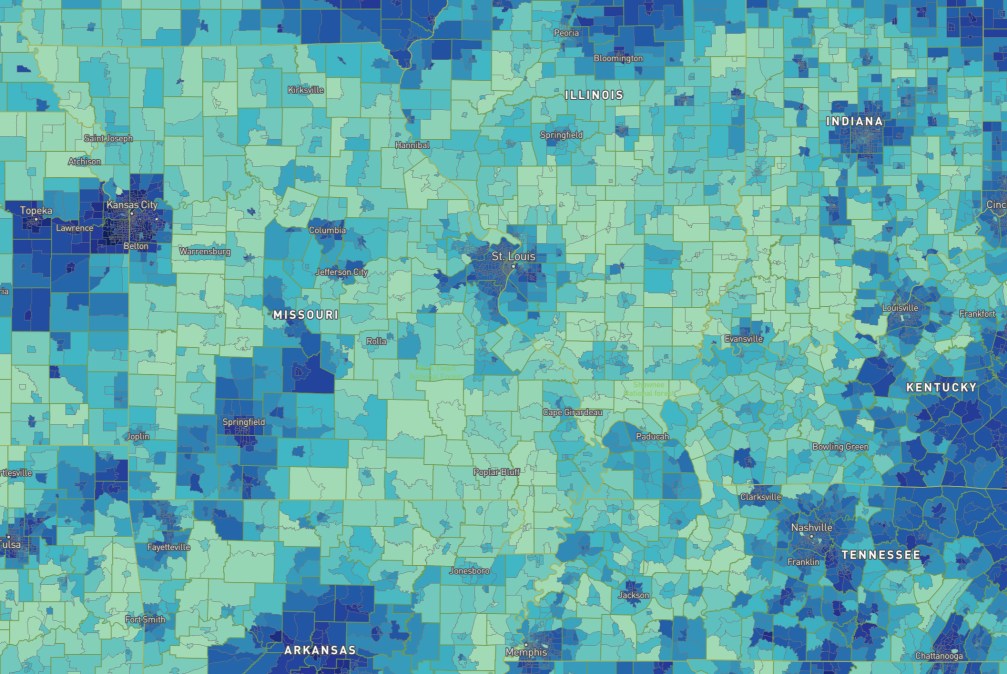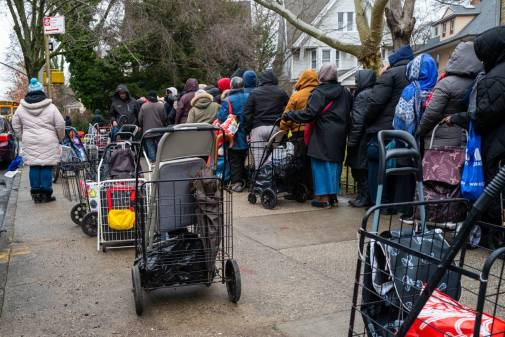Congress introduces bill to improve federal broadband maps

A bipartisan group of four U.S. senators this week introduced legislation aimed at improving the maps the federal government uses to distribute broadband funding to the states, as well as giving the public the ability to challenge the accuracy of those maps.
The Broadband Data Improvement Act of 2019, as the bill is known, would require broadband providers to use data generated by geospatial information systems when drawing the maps they submit to the Federal Communications Commission, which it uses as a guide to allocate billions of dollars in subsidies and grants.
“Many Americans can’t access the internet because they live in an area without fast and reliable broadband,” said Sen. Brian Schatz, a Democrat from Hawaii, who introduced the bill along with fellow Democrat Jon Tester of Montana, and Republicans Shelley Moore Capito of West Virginia and Jerry Moran of Kansas. “But we can’t fix the problem if we don’t fully understand where it’s happening. The broadband data and maps we have today fall short.”
A press release on the bill states there is “broad bipartisan consensus” that the mapping data the FCC collects currently is not accurate or precise enough to guide the commission’s broadband funding decisions.
Congress has considered similar legislation in the past. In 2008, President George W. Bush signed a bill, also called the Broadband Data Improvement Act, that required the FCC to expand its observation of public opinion on broadband availability and compare U.S. coverage maps with those of other countries.
The new legislation would also introduce heightened requirements for the quality of the data that broadband providers are required to submit. It proposes an overhaul of the current submission process, calling for more refined GIS data hoped to improve map accuracy.
“By moving away from the current census block approach to one that utilizes shapefiles plus crowdsourcing, the Broadband Data Improvement Act of 2019 would more clearly identify served and unserved areas and will put the Commission on the surest path to significant mapping improvements in the shortest timeframe,” the NCTA, which represents the nation’s cable companies, said in a press release supporting the bill.
Last year, Vermont state employees drove thousands of miles criss-crossing the state to prove that broadband providers overrepresented their coverage in rural areas. The National Telecommunications and Information Administration also partnered with eight states earlier this year to improve the FCC’s national broadband map, but the FCC still estimates that roughly 20 million Americans lack access to broadband. The inaccuracy of the maps makes it even more important, Tester said, that the FCC improve its data before distributing $4.5 billion through its Mobility Fund to broadband providers expanding access in rural areas.
“In rural America, one farm could have access to broadband while their neighbors down the road remain in the dark. But if you look at these maps, they say both farms are covered,” Tester said. “So, if we’re serious about improving desperately needed connectivity in rural areas, we first need more granular data that actually reflects who’s covered and who’s not, so resources can get where they’re needed most.”
The legislation would also establish a new feedback tool integrated into the FCC’s online mapping platform and third-party and on-the-ground validation of areas where coverage is disputed. Small service providers would also be granted assistance to submit their coverage maps with GIS-enabled data.
Sen. Amy Klobuchar, a Democrat from Minnesota, has also proposed legislation that would grant power to municipalities during the broadband mapping process. Klobuchar introduced the Improving Broadband Mapping Act of 2019 in March, which would require the FCC to establish a process by which consumers and local governments could report their own data to verify carrier-submitted data. The bill is currently before the Senate Committee on Commerce, Science and Transportation.






